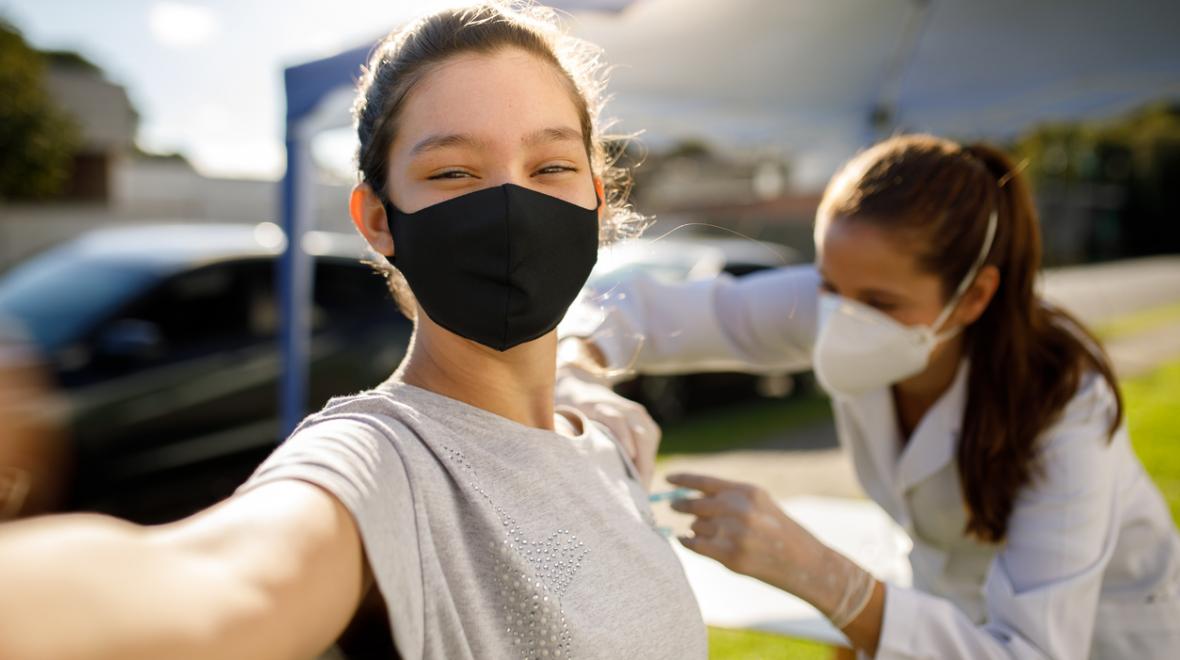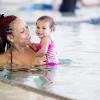
As research on COVID-19 continues, how the virus affects adults is more widely apparent than how it affects kids. Preliminary studies have shown us that children are seemingly not transmitting the virus as easily as adults are; however, we’re still discovering the specific variants most commonly spread among kids.
While it’s true that kids who have contracted COVID-19 don’t exhibit symptoms as severe as adults, we must not downplay this result. A small percentage of children who’ve contracted the virus can develop multisystem inflammatory syndrome in children (MIS-C), a condition where different body parts can become inflamed, including the heart, lungs, kidneys, brain, skin, eyes or gastrointestinal organs.
Being a pediatric doctor, I get questions from parents every day, ranging from if and when their kid needs to wear a mask, when the vaccine will be available for kids, or when they can play with friends and hug their grandparents again.
To help parents navigate these tricky conversations with their young ones, I wanted to share some of the most common questions I’ve received from parents and the research that other doctors and I have been doing to understand more about kids and COVID-19.
Is it safe for my child to attend in-person school?
There are pros and cons when it comes to in-person learning, but as long as your child is following CDC guidelines, they should be safe. In-person learning provides an environment for kids to foster social interactions, make friends and build relationships, acquire critical thinking skills and participate in activities that children need to be successful later in life. Adding to this, not all children have the ability to self-motivate or the discipline to keep up with online school while avoiding surrounding distractions.
The progress that the United States has made in terms of vaccine rollout for teachers and essential workers is encouraging, and as long as those teaching in person are vaccinated, parents can feel some ease sending their kids back.
Though children are generally at a lower risk of contracting COVID-19 than adults, this does not mean they are immune. If parents and households are following all CDC guidelines, such as unvaccinated people wearing masks when outside of the home, the risk for children is greatly reduced, even when attending in-person school. When at school, masks should be worn at all times, and kids should try to maintain social distance.
How safe is the vaccine for kids and when will kids be able to get it?
Given the mRNA mechanism for how Pfizer and Moderna vaccines work, I do expect that they will be safe for kids without causing significant issues. According to Pfizer, the vaccine has so far been 100 percent effective in trials for preventing COVID-19 in children ages 12–15. The CDC's Advisory Committee on Immunization Practices voted unanimously on May 12 to recommend giving the Pfizer vaccine to kids as young as 12, meaning that this specific age group is now eligible to receive the vaccine under the U.S. Food and Drug Administration's emergency use authorization.
For children ages 11 and younger, Pfizer has said that it is currently testing the vaccine and performing trials on children as young as 6 months old. This group could become eligible as early as the end of this year or early next.
For more information on mRNA vaccines, check out this blog written by Benaroya Research Institute at Virginia Mason Principal Investigator Adam Lacy-Hulbert, Ph.D.
Can my kids see their vaccinated grandparents?
Not traveling is the safest thing to do. If you must travel, you should take precautions.
Yes, grandkids may visit their vaccinated grandparents, but we still recommend masking up. Continuing to wear a mask might be frustrating for some, but it’s important to understand that there is still a possibility you could get COVID-19 despite being vaccinated. This virus is still very new, and research is still being performed.
For vaccinated grandparents considering traveling to visit family and friends, driving is still the safest option. If you must fly, double-masking is recommended. Overall, I would advise holding off on traveling until cases drop down in your region/destination and more people are vaccinated.
What will summer look like?
Sentiments are largely positive heading into the summer compared to last year and will remain positive so as long as vaccination efforts continue. It’s imperative that we continue encouraging hesitant members of our community to get vaccinated. This, along with more outdoor and socially distanced activities, will help to greatly reduce our positive-case counts this summer.
Hopefully, most of the population will have antibodies to the virus by the time June rolls around. Better weather and more activities and events outdoors should result in a happier summer for all.











